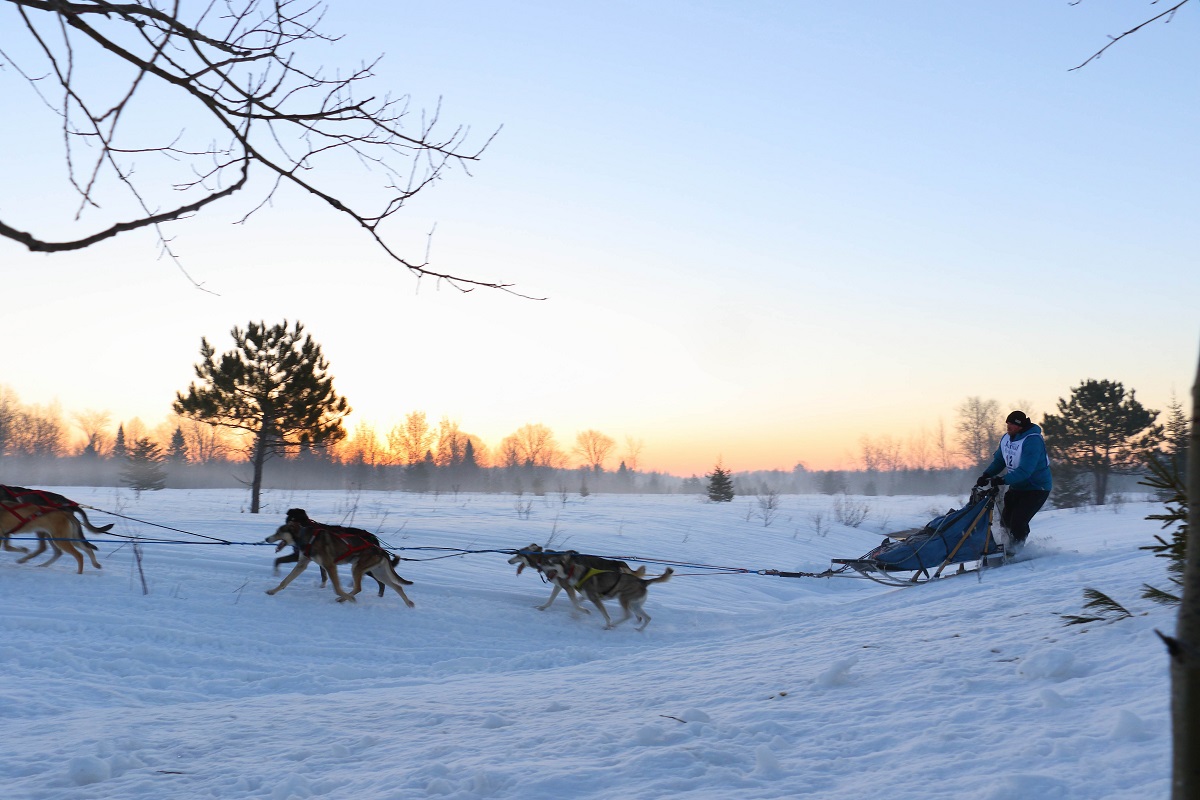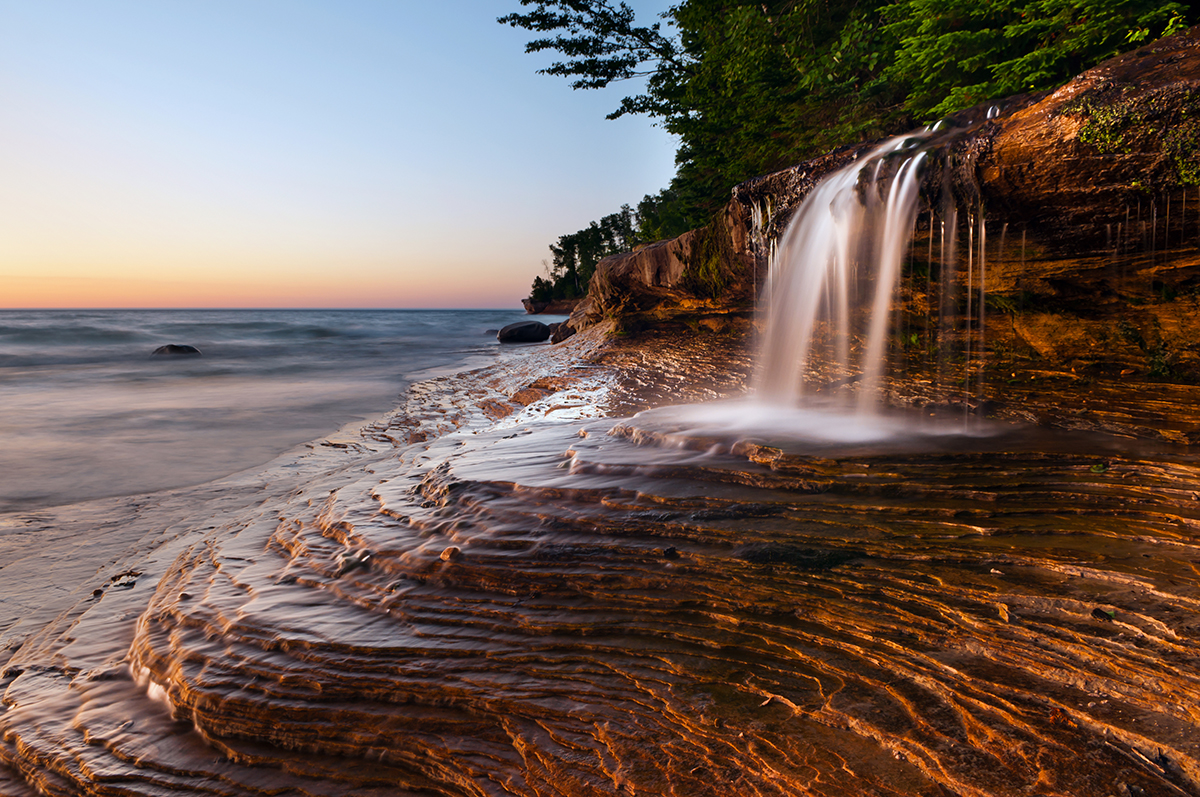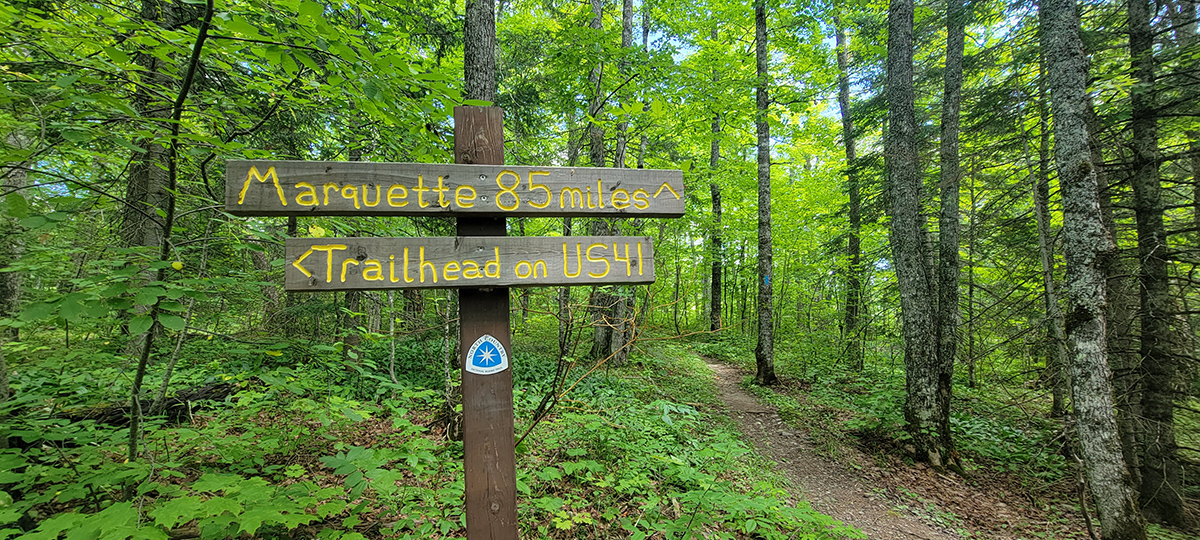WRITER | EMELL DERRA ADOLPHUS
PHOTOS L SIGURD UTYCH AND RUSSELL UTYCH
Sled dog races in Michigan’s Upper Peninsula beckon racers and residents from across the region to the outdoors to celebrate the season
Winter arrives in Michigan’s Upper Peninsula, and so do the region’s annual sled dog races. Cold air nips at fingers, fur, legs, and heels, as the mushers and their dogs leap wildly across area trails into the white wilderness.
On February 15-19, the annual UP200 (230 miles), Midnight Run (90 miles), and Jack Pine 30 (26 miles) races commence in downtown Marquette. The events attract thousands of spectators each year, boosting the local economy and beckoning residents from their winter retreats to celebrate one of the season’s most popular sports.
“You’re at this downtown start, at night, and you take off from this incredible crowd. You follow the shoreline by Lake Superior out of town,” musher Frank Moe explains. “People come out for miles with bonfires along the trail to cheer you on. The public’s support of the race is pretty remarkable.” Moe travels from Minnesota to race in the UP200; this year will mark his seventh race.
“Eventually you get out in the wilderness where it’s pretty remote. You don’t see anyone for a long period. Then it’s just you and your dogs,” he says. “Getting to spend three days with them is why I do the race.”
Moe fell into sled dog racing nearly 20 years ago. He started by having his two dogs pull him on his rollerblades, then skis, then a sled. “I thought, ‘Boy, a couple more dogs would pull this sled even better,” he says. He now maintains a kennel of 42 dogs, called Moetown Kennels, with his wife Sherri.
To compete in the UP200, a strong kennel of racing dogs is crucial. Up to 12 dogs are allowed in the race, but it’s important to have others who can run when needed.
“Every kennel is a little different,” he explains. “The UP200 is competitive. It’s a pro race, and teams come from all over North America to participate. So you need to have a good kennel behind your team to have 12 quality dogs to run.” He adds, “There’s really no other race quite like it.”
Founded in 1990, the UP200 spans from Marquette to Wetmore to Grand Marais and back. The Upper Peninsula Sled Dog Association (UPSDA), which manages the race and rules, began in 1989. The group of former mushers wanted to bring the sport to Michigan. Since then, the race has become one of the top distance races in the country, explains Darlene Walch, president of the UPSDA board of directors.
“The people who put on sled dog races and the mushers who participate are a very close-knit community,” says Walch, a former musher. “They are independent and yet they also try to take care of each other because they realize they are in an extreme sport.” Walch, a former administrator in higher education, has been involved with the board for more than 15 years and started racing as a way to relieve stress and to get outdoors.
“Dogs made me get outside and do something. Snowmobiles or skis are inanimate. They don’t demand anything,” she says. “When I first witnessed sled dog racing, I was enamored with it. When I started to get involved as a musher, I became more intrigued. It gets to be very calming and thrilling all at the same time.”
Even though Walch no longer trains dogs, she still stays heavily involved with the race behind the scenes so others can have the opportunity to feel that thrill.
The community also shares in this endeavor. Kick-off celebrations are family-friendly events that have been a mainstay for some area residents for generations. “People bring their kids, and some adults came to the UP200 when they were kids. It’s been around that long. It’s a multigenerational event,” says Tara Laase-McKinney of the Marquette Downtown Development Authority.
The top prize for winning the UP200 race is $7,200, the Midnight Run pays $2,300, and the Jack Pine 30 pays $200. It’s not about the money for most racers, though, as they will spend thousands of dollars more in caring for their dogs. It’s about the thrill.
Musher Martin Massicotte has run the UP200 three times, placing second the last two years. This year, he’s training 24 dogs in preparation for the UP200. “I have so much fun in the UP200. It’s different from other races – it’s faster,” he says.
A chance to get outside and enjoy the scenery is enough of a reason to participate in the race for many mushers.
“I was supposed to be a doctor,” says musher Ed Stielstra, who did his undergrad at Michigan State University. “As soon as I finished my undergrad degree, I knew I was done. Four years of being inside was enough. It was time to get outside and move.”
Stielstra manages Nature’s Kennel in McMillan with his wife Tasha, a fellow musher. In between training dogs to race, the kennel operates a dog sled touring business. He and his wife have won the UP200 once.
“Mushing is a worldwide sport, but it’s out of the mainstream,” he says. “It’s very hard to explain the thrill to somebody who hasn’t done it, but if you’ve stepped onto a sled, you would understand. It’s similar to sailing because there is a tremendous amount of power in front of you.” Stielstra didn’t race in the UP200 last year, but he’s eager to get back on the trail.
“People are celebrating winter up here, and that’s one of the reasons I love the UP200 so much,” he says.
“The dogs are doing what they love to do, and fortunately I get to go along for the ride,” taking a community of supporters along with them.








